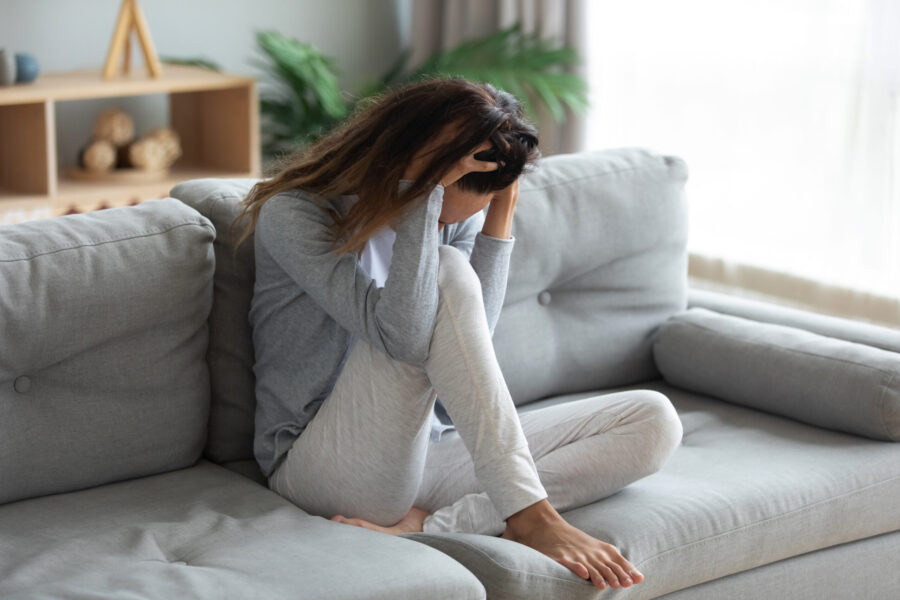Stress and anxiety are not just buzzwords but real issues that affect millions globally. While stress is often a response to a specific external challenge or demand, triggering the body’s “fight or flight” reaction, anxiety is more about the anticipation of future threats. Anxiety disorders, including generalized anxiety disorder, panic disorder, and social anxiety disorder, can develop when this natural response gets dialed up to ten and doesn’t turn off.
Recognizing the Signs
Being able to recognize the signs of stress and anxiety is the first step on the path to healing. Stress often manifests through physical symptoms such as headaches, muscle tension, fatigue, and sleep disturbances. Emotional signs include feelings of overwhelm, irritability, and difficulty concentrating. Anxiety, while overlapping with stress in many symptoms, also introduces persistent worry, intense fear, or panic about situations that are not proportionately dangerous.
Impact on Health and Well-being
Chronic stress and prolonged anxiety can lead to significant health problems.
Physically, they can contribute to heart disease, hypertension, diabetes, and a weakened immune system.
Mentally, they are major triggers for mental health disorders such as depression and can lead to an increased risk of substance abuse. The impact on one’s quality of life can be profound, affecting relationships, productivity, and overall happiness.
Strategies for Managing Stress and Anxiety
Mindfulness and Meditation
Engaging in mindfulness and meditation can be transformative. Mindfulness involves maintaining a moment-by-moment awareness of our thoughts, feelings, bodily sensations, and the surrounding environment. Meditation can take this practice deeper, providing a technique to focus and redirect thoughts. Studies show that regular meditation can decrease cortisol levels, the body’s stress hormone, promote relaxation, and reduce anxiety.
Physical Activity
Exercise is a powerful stress reliever. It can improve your mood, boost your overall health, and increase your energy levels. Activities like walking, running, swimming, and yoga can significantly lower stress and anxiety levels. The key is consistency and finding a form of exercise you enjoy, making it easier to incorporate into your daily routine.
Healthy Eating Habits
What we eat can significantly affect how we feel. A diet rich in vegetables, fruits, unprocessed grains, and fish can help combat stress and anxiety. Certain foods, such as those high in Vitamin B (like avocado and almonds), omega-3 fatty acids (found in salmon), and magnesium (present in leafy greens), can help regulate emotions and relieve stress. Conversely, reducing the intake of caffeine, sugar, and processed foods can diminish anxiety symptoms.
Adequate Sleep
Sleep and stress have a two-way relationship. Stress can lead to sleep loss and, in turn, loss of sleep can make stress worse. Creating a relaxing bedtime routine, avoiding screens before bed, and ensuring your bedroom is a calm, comfortable environment can promote better sleep. If anxiety keeps you awake, techniques such as progressive muscle relaxation or guided imagery can be beneficial.
Time Management
One of the biggest sources of stress is the feeling that there’s too much to do and not enough time. Effective time management involves setting priorities, breaking tasks into smaller steps, and building in breaks. This can help reduce the feeling of being overwhelmed, decrease procrastination, and increase productivity, thereby lowering stress levels.
Social Support
Having a strong support network provides a buffer against life’s stressors. Sharing your thoughts and feelings with friends, family, or a support group can make burdens feel lighter. For deeper issues, therapy can provide a safe space to explore and understand anxiety, offering tools and strategies to manage it more effectively.
Professional Help
For those with chronic or severe anxiety, professional help can be vital. Therapies like Cognitive Behavioral Therapy (CBT) are highly effective in treating anxiety disorders. Medications may also be prescribed to help manage symptoms, though they work best in conjunction with therapy.
Personalized Stress and Anxiety Management Plans
Developing a personalized plan involves understanding what triggers your stress and anxiety, recognizing how they manifest in your life, and identifying which coping strategies work best for you. This could mean setting aside time each day for relaxation techniques, scheduling regular exercise, or setting boundaries to ensure work-life balance. Regular reflection and adjustment of your plan will help you find the best approach to managing stress and anxiety.
Stress and anxiety are complex issues that require a multifaceted approach to manage effectively. By understanding their impact, recognizing their symptoms, and applying a combination of strategies, it’s possible to significantly reduce their hold on your life. Remember, it’s okay to seek help, and making your well-being a priority is not just necessary, it’s essential. Adopting these strategies can pave the way to a calmer, more fulfilling life.

